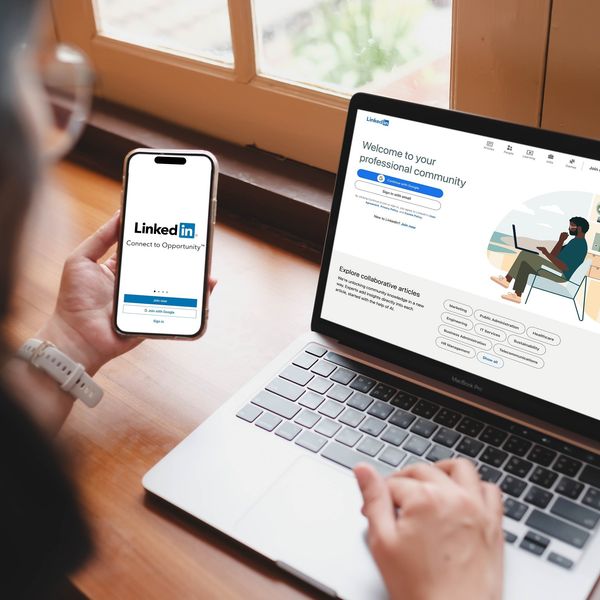
How to Use Humor in Advertising to Make Your Small Business More Memorable
By Zarna Feltham
You can probably reel off a list of national brands that use humor as part of their advertising: when Spotify used quirky customer statistics instead of traditional billboards; when KFC apologized for running out of chicken in the UK and said sorry for the FCK up; or how Skittles has managed to be taken seriously, despite running ads consisting of downright nonsense.
The fact that you are easily able to recall any number of these campaigns proves their efficacy as attention-grabbing devices. But can humor work for smaller companies or with local business campaigns?
How humor can help your business
Humor is disruptive. It makes people stop and pay attention. Research shows that when we find something funny, we are 53% more likely to remember it.
This is because we pay more attention to humor than something that is pure information. When someone sees a message that makes them laugh, they process it as entertainment, not an ad, and people want to be entertained more than they want something sold to them. Considering that the average person sees upwards of 6,000 ads a day, this could be the magic ingredient that will help you stand out in a landscape saturated with advertising competing for your attention.
Humor in your advertising can help to solidify your branding, and work to create a friendly voice for your company, especially if you don’t have a substantial budget for marketing. However, using humor takes some careful consideration. Different industries have different things that they can or cannot joke about, and different customer bases will have different expectations. A bank, for example, may have a humorous ad campaign to get people in the door, but they wouldn't joke about losing your money. When it comes to the serious stuff, most businesses want—or need—to appear professional and reliable.
The best thing about using a bit of lighthearted japery in your marketing is that it levels the playing field. By taking calculated risks that bigger brands are afraid to experiment with, smaller businesses can compete with larger companies. People also feel connections to those who make them laugh, so if your advertising, logo, or signage does that, it may be the thing that makes customers come to you over a faceless global competitor.
Taking this a step further, you can also add a human side to your brand with humorous branding. The ability to laugh at yourself or with others can inject personality, and make your business appear more approachable.
That being said, you shouldn’t just use any old joke; it has to be somehow related to your brand. Coffee shops have been doing this to great effect for decades (Jitters, Central Perk, the Daily Grind, etc.), while a lot of microbreweries use wordplay in both their signage and their product names.
You also could use your name, logo, product, or services as part of a joke, and while this may take some real thinking to come up with, studies have shown that it is definitely worth it, as companies that regularly use humor outperform their competitors.
Ideas for using humor in your business
There are three main ways to inject humor into your business:
- As part of a temporary ad campaign outside of your property
- As part of the inside of your business, such as menu boards, window displays, etc.
- As part of your actual logo, name, or permanent signage
The types of humor that work best are exaggeration, silliness, puns or plays on words, visual humor, and surprises. Think about humorous signs and ads you have seen recently or which have stuck with you, and try to break down why they are so effective.
Business branding
If you want humor to be an integral part of your branding, then go all in, like Pho Real, a Vietnamese restaurant in Colorado. Another hilarious example is Bread Zeppelin in Texas, which takes it one step further by adding a slogan that builds on the name: salads elevated.
If you go for the humorous approach with your name, you need to do it in a considered but emphatic way—don’t just tack on any old joke that is not relevant to your business. You can also play on other aspects of your business, such as location: Indiana Jeans anyone?
Out-of-home (OOH) advertising
Banners or large print outdoor signage are a great way to apply humor to your business branding. As these forms of signage usually have a limited lifespan, they don’t represent a permanent change to your logo or slogan. The best jokes for these signs are ones that make use of your name, logo, or the products you provide, creating a temporary talking point.
Think about whether there are any sites near your location that would be ideal for OOH advertising. For example, if your cafe is near a popular tourist attraction, you could run a humorous banner ad campaign (“You’ve seen the best attraction in New York, now try the best coffee, as reviewed by a woman on Tripadvisor three years ago!) to bring them to your store.
More articles from AllBusiness.com:
- Digital Signage Can Help You Increase Sales and Connect with Customers
- Managing a Staff that Does Not Get Along
- A Priest, A Rabbi, And A Minister Walk Into A Bar
- 10 Key Provisions of Franchise Agreements
- Got a Boring Business? Try These Marketing Ideas
Vehicle wraps
One of the best ways to use humor in advertising and reach a lot of people is to use it on your delivery or work vehicles. Come up with a funny slogan that can be put on the backside of a truck or van that people driving behind you will have time to read. This gets your brand exposed to a larger audience than if you put it on a banner that stays in one place. Slogans can also be changed out as often as you like, letting you experiment with different options.
Interior signage
You could also inject a bit of humor inside your business. Just because you take your business seriously, doesn't mean your open and closed sign, or the sign marking the restroom, have to be.
Temporary/changeable items
If you want to use something even more temporary, or that can be changed more frequently, you could always use an a-frame sign or a blackboard placed outside of your business that you can add jokes to weekly. These type of signs can also help people locate your business, particularly useful if you are located on a lesser-used side street.
Another popular option is changeable letter signs—sometimes known as reader boards or marquee letter signs—which are located outside establishments and can be changed to display the day's special offers or a cleverly worded pun. These can work to great effect for topical jokes and getting yourself seen online as they are easily photographed and shared, but without too much risk involved: if someone doesn’t like the sign, you can simply take it down.
Getting serious about humor
Before launching an advertising campaign based on humor, there are a few issues to consider:
- Take care not to offend. Not everyone is going to see your humor as comedy gold, but if it gets their attention, it’s worked. However, it is a different matter altogether if you offend or alienate someone. No one wants to become notorious for all the wrong reasons, so it’s a good idea to test your ideas on people you know before committing to anything. Try to avoid anything divisive or political, or use anything timely on longer-term signage, as this will either create negative debate or age far too quickly.
- Be selective of where and when you add humor. Humor can work amazingly well on advertising banners, window graphics, or the side of a delivery van; less on legal documents or in moments when the customer expects professionalism.
- Don’t overdo it. You don't want to come across as too informal or not taking your business and clients seriously, and you don’t want to wear out your welcome: every extra joke will lessen the impact of the one before it.
- Jokes usually need to be understood at a single glance—or a second glance at the very most. Luckily, this works really well for brands with complicated names (or names that don’t make it obvious what industry they are in, such as family-based names). People will remember the joke and your name by association.
One sideways way in which humor can help promote your business is if your campaign or joke goes viral. If people like your message and it gets shared online, it can easily snowball, especially if has an attention-grabbing visual element. You could even build on the joke by updating it or doing a promotion in conjunction with it. This is, however, something that can only happen organically—if it is even hinted at that it was done with that goal in mind, the joke will die very, very quickly.
Last laugh
When it comes to using humor in advertising your small business, whether it be as a permanent part of your branding or a temporary ad campaign, it is important to consider your audience, your industry, and the timing of the piece.
With careful planning and a bit of research, there is absolutely no reason why you can’t harness the benefits of a good joke or wordplay—helping get customers on your side, and through your doors.
RELATED: 4 Companies That Use Humor in Marketing (And How You Can Too)
About the Author
Post by: Zarna Feltham
Zarna Feltham is the Production Manager at Medash Signs, which for over 40 years has provided commercial signage throughout the UK, offering a wide variety of sign types for a broad mix of businesses across the country.
Company: Medash Signs
Website:www.medashsigns.com
Connect with me on LinkedIn.



